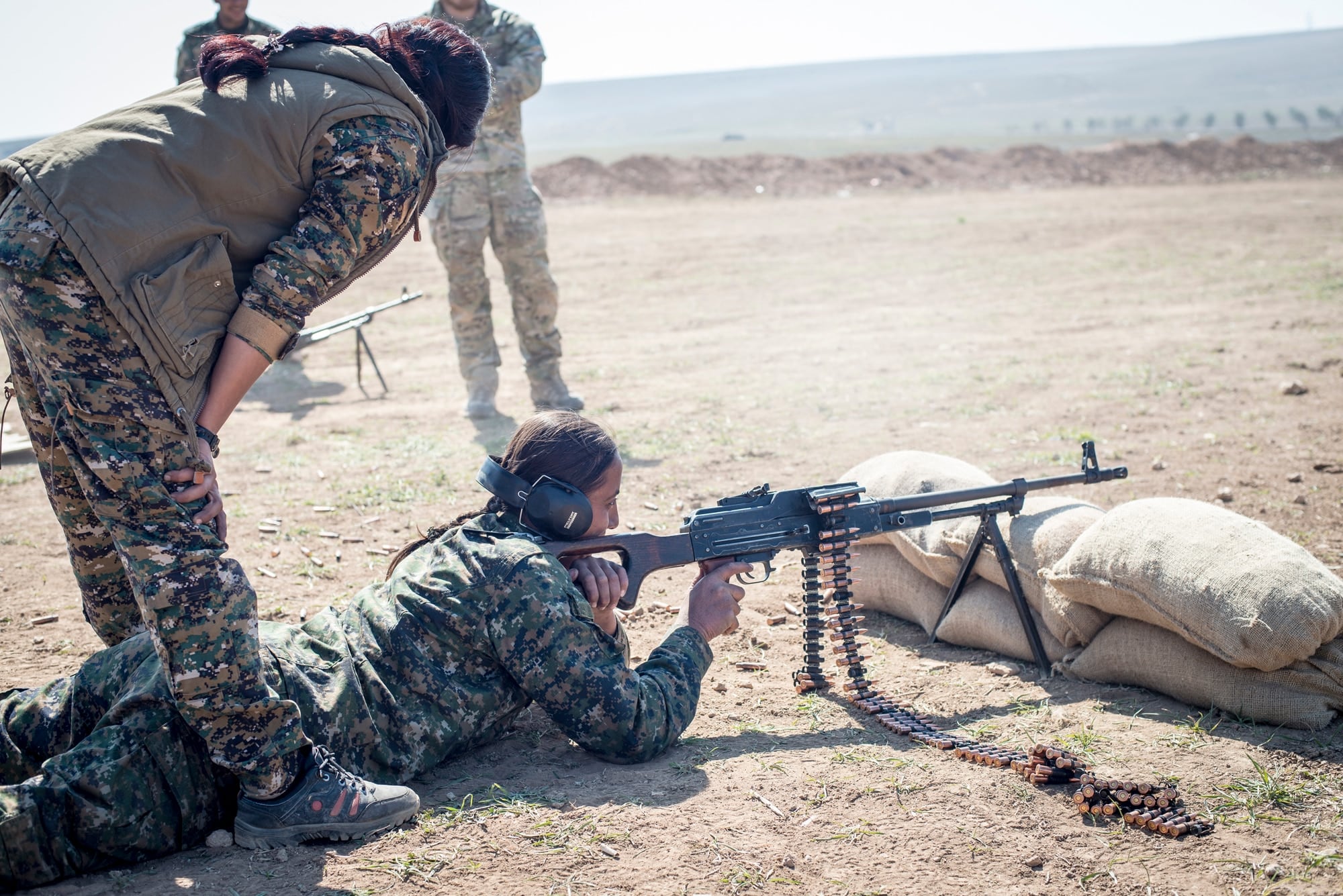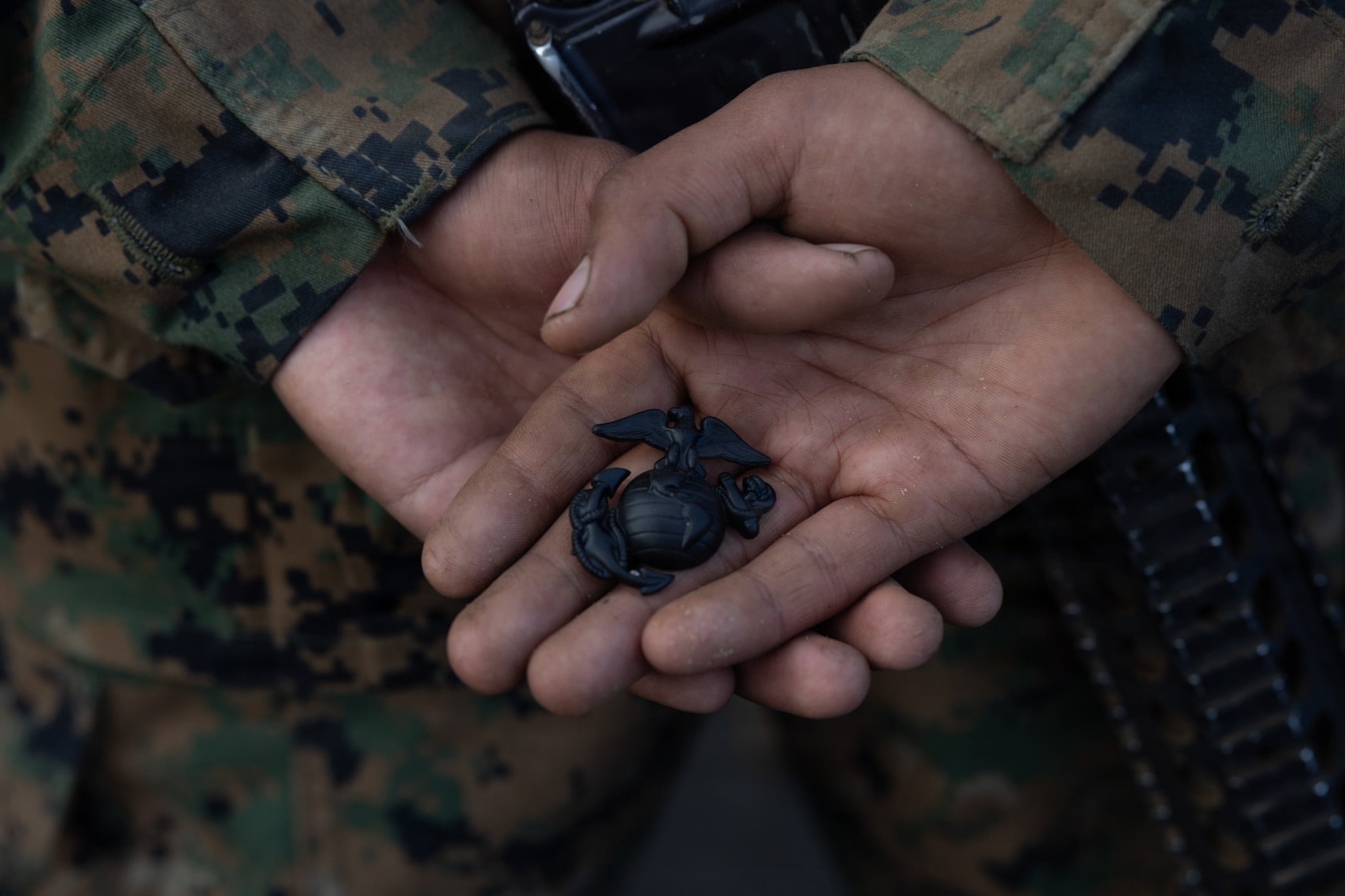The U.S. is still providing arms and weapons to Kurdish allies fighting ISIS in Syria despite recent reports suggesting the U.S. would end its support of the People’s Protection Units, or YPG.
There have been no changes to the policy put forth by the Trump administration in early May that authorized the U.S. military to arm Kurdish militants fighting under the larger coalition of mixed Kurd and Arab fighters, known as the Syrian Democratic Forces, Col. Ryan Dillon, a spokesperson for Operation Inherent Resolve, told Military Times.
The policy to arm the Kurdish fighters has been contentious, as U.S. NATO ally Turkey views the ragtag group of fighters akin to the internationally designated terror group the Kurdistan Workers’ Party. President Donald Trump’s announcement in May to arm the Kurds has soured U.S. relations with Ankara.
Yet, Kurdish activists have posted videos on social media of recent convoys sending fresh supplies, including U.S. Humvees, to the Kurdish fighters.
Dillon wouldn’t confirm those reports, saying that he would not go into the details of how often and when supplies arrived to the U.S-backed fighters.
“We don’t arm them every single day,” he told Military Times.
A representative of the Syriac Military Council, a small group of Syriac Christians within the SDF, told Military Times that there were no changes to policy and that the SDF was continuing to receive assistance and equipment from the U.S.
Turkish Foreign Minister Mevlut Cavusoglu told reporters on Nov. 24 that Trump had agreed to end support of the Kurdish militants in Syria during a phone call with Turkey’s president, Recep Tayyip Erdogan, according to AP.
A White House readout of the call partially confirmed the Turkish foreign minister’s account. “Consistent with our previous policy, President Trump also informed President Erdogan of pending adjustments to the military support provided to our partners on the ground in Syria now that the Battle of Raqqa is complete and we are progressing into a stabilization phase to ensure that ISIS cannot return.”
The U.S. has maintained since May that the program to arm the Kurdish militants would be metered out and on an as needed basis. And U.S. officials have routinely iterated that America’s relationship with the controversial group is purely transactional.
In late June, Secretary of Defense Jim Mattis reassured his Turkish counterpart by saying the U.S. would take back equipment it supplied to the militants when ISIS was defeated in the region.
RELATED

But the U.S. has still yet to implement a process or inform SDF fighters or commanders of any pending plans to take those weapons back, Dillon told Military Times.
Despite the liberation of Raqqa and the apparent collapse of ISIS in the region, “there is still quite a bit of work” to be done, he said. ISIS still controls territory east of the Euphrates River.
The coalition is still supporting the SDF, and that includes the Kurdish fighters within the group, Dillon told Military Times.
Shawn Snow is the senior reporter for Marine Corps Times and a Marine Corps veteran.





